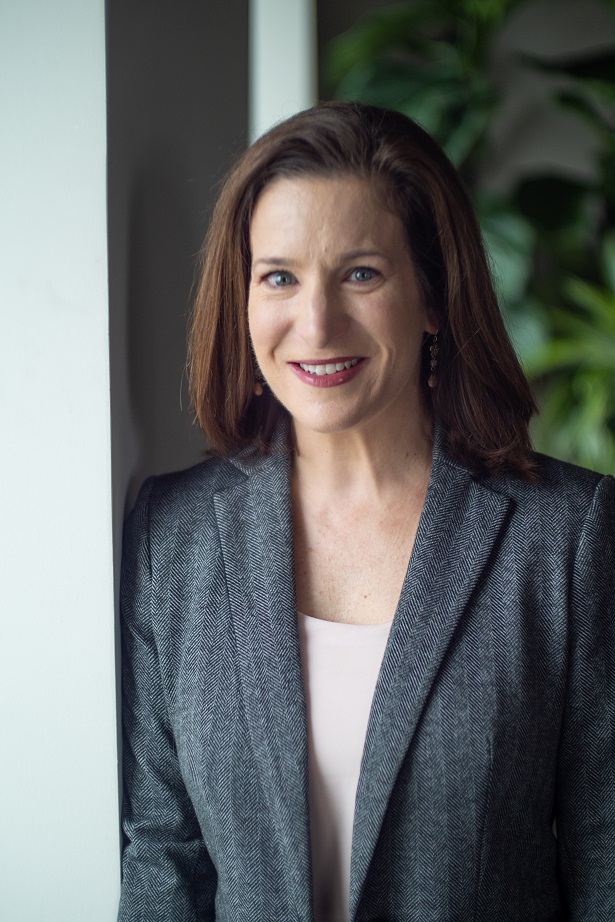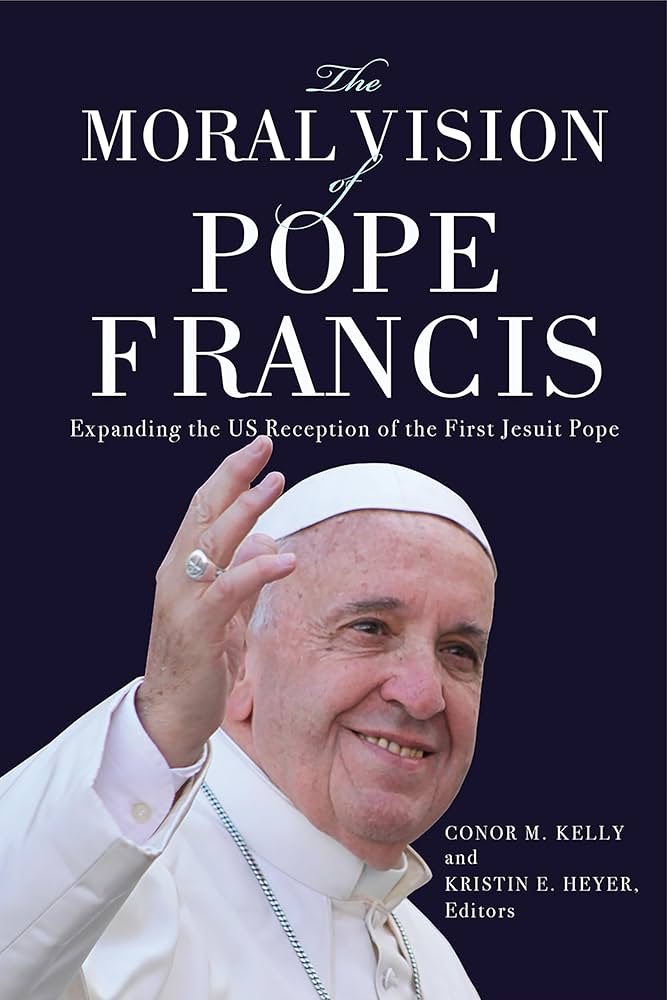Reflecting on Pope Francis's vision for the Church
For more than a decade, Pope Francis has led the Roman Catholic Church, emphasizing collegiality in ecclesial governance and focusing global priorities on the poor, the marginalized, and the environment. His vision for the Church—and the reluctance by many Catholics in the United States to engage with it—are explored in a new book co-edited by Boston College Joseph Professor in Catholic Theology Kristin Heyer.
The Moral Vision of Pope Francis: Expanding the US Reception of the First Jesuit Pope (Georgetown University Press), co-edited by BC alumnus Conor Kelly, an associate professor at Marquette University, brings together leading U.S. Catholic theologians and theological ethicists to reflect on Pope Francis’s implicit approach to moral theology, evaluating his teachings and actions to characterize his moral vision and explain how this vision should apply to a range of contemporary issues. The book’s contributing authors, most of whom are affiliated with Boston College, also explore the Ignatian influences shaping Francis’s pontificate.
Heyer and Kelly say there is an under-appreciation of Pope Francis in the U.S. driven primarily by two factors, one scholarly and the other related to content.

Joseph Professor in Catholic Theology Kristin Heyer is co-editor of 'The Moral Vision of Pope Francis.'
“In the field of Catholic moral theology and theological ethics, Pope Francis’s vision has been slower to take root because, unlike his two predecessors [Pope Benedict XVI and Pope John Paull II], Francis is less of a systematic thinker,” said Heyer. “His approach is not to offer careful maxims but to respond with pastoral urgency. So to capture his moral vision, we needed to look not only at his official teachings, but also his homilies, addresses, gestures, and mode of engaging the world Church. We needed to ‘reverse engineer’ the implications of these ample modes of witness in order to distill their implications precisely in terms of moral theology.”
Another contributing factor to the lack of reception to Francis’s message in the U.S.—both among bishops and the faithful in the pews—is that the pontiff’s words and actions are often at odds with American culture, said Heyer. “There’s deep individualism in American culture, and Pope Francis is really lifting up solidarity and a culture of encounter. Similarly, his teachings opposing throwaway culture, critiques of capitalism, and his prophetic statements about the environment are at odds with our comfort with consumerism. There is resistance because his message goes against the grain.”
In Part I of The Moral Vision of Pope Francis, the foundations of the pope’s moral vision are examined by Kelly and contributing authors Monan Professor of Theology Lisa Sowle Cahill; Canisius Professor of Theology and Vice Provost James F. Keenan, S.J.; and BC alumni Elyse Raby of Santa Clara University, M.T. Dávila of Merrimack College, and Thomas Massaro, S.J., of Fordham University.

Part II looks at the application of Francis’s moral vision across various topics. Heyer addresses migration, while her Theology Department colleague Walsh Professor Andrea Vicini, S.J., focuses on bioethics. BC alumni Daniel DiLeo of Creighton University, Laurie Johnston of Emmanuel College, Megan McCabe of Gonzaga University, and Maureen O’Connell of La Salle University examine ecological ethics, peace ethics, gender and feminism, and racism, respectively. Fordham University Professor Rev. Bryan Massingale, the James and Nancy Buckman Chair of Applied Christian Ethics, addresses LGBTQ issues and morality.
The roots of The Moral Vision of Pope Francis go back to an October 2022 Boston College conference on “The Moral Theology of Pope Francis.” Funded by the Institute for the Liberal Arts and the Jesuit Institute, the conference hosted a public panel where Cahill, Fr. Keenan, Kelly, and Fr. Massingale talked about the impact of Francis’s papacy and implications for the field of ethics and moral theology, challenges, opportunities, and what the future might hold.
The second part of the conference was a private, all-day workshop where the contributing authors shared research on the impact of Pope Francis’s approach to moral theology on their particular subject area. All the participants read each other’s book chapter drafts and each was assigned a respondent. This collaborative approach, said Heyer, is what led to a very cohesive published volume. It also led the co-editors to change the title of the book from moral theology to moral vision. “The final product exceeds the scope of moral theology; there are implications for ministry, lay empowerment, for synodality.”
“There’s deep individualism in American culture, and Pope Francis is really lifting up solidarity and a culture of encounter. Similarly, his teachings opposing throwaway culture, critiques of capitalism, and his prophetic statements about the environment are at odds with our comfort with consumerism. There is resistance because his message goes against the grain.”
Across the chapters, certain signposts in Francis’s papacy and vision emerged, noted Heyer. His commitment to discernment and to the importance of “heart over head” are evident in Francis’s teaching and shape what he has to say. Added Heyer: “My chapter on migration, for example, takes this up in detail. It’s not just about structures and policies, but ideologies and attitudes and how fear and xenophobia really shape our thinking and our action.
“Francis is attentive to unjust policies and how harmful attitudes foster social injustice across a range of issues, such as the way in which they prevent us from hearing the cry of the Earth or the cry of the poor. He’s not only looking at individual wrong action or virtue and vice, but at more structural shortcomings, which is a different approach from what Catholic theologians have seen in the past.”
Francis is comfortable with ambiguity and descending into the messy realities of life, according to Heyer. “He’s really attentive to the gap between norm and ability to embody that norm and the danger in using rules or laws as stones to throw at people’s lives. Sometimes that is disappointing to people, but it allows for a real engaging of new questions with honesty.”
The book has drawn early interest from scholars and theologians, and was the topic of a panel at the annual meeting of the Catholic Theological Society of America held over the summer. Heyer and Kelly envision professors using The Moral Vision of Pope Francis in their courses.
“We tried to present what it would mean for U.S. Catholics, both the people of God and scholars in the ivory towers, to reshape our way of being a Church in light of Francis’s leadership and embrace a Church comfortable with ambivalence, centered on mercy and responsive listening, and focused on the poor.”
